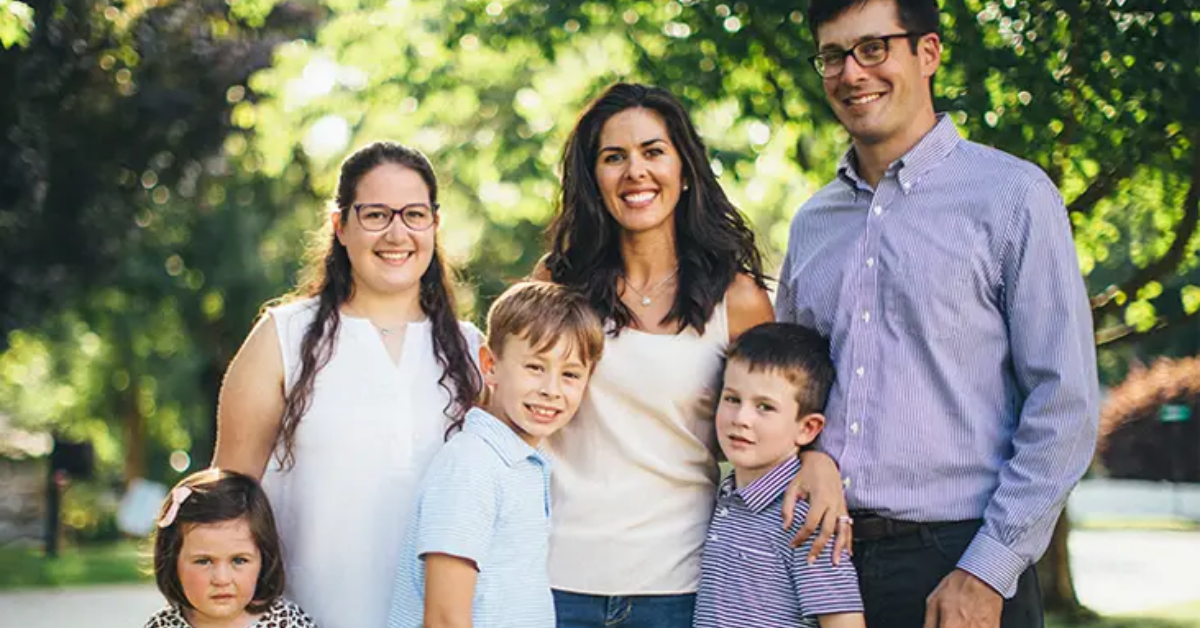Imagine it’s a regular Tuesday night in Washington DC. Dinner’s on the table. Your kids aren’t just talking about their school day—they’re sharing how to say “goodnight” in another language. There’s laughter over a new dish you’ve all just tried for the first time.
It’s warm. It’s connected. And it’s all happening right in your own home.
That’s the beauty of cultural exchange. It’s not about grand gestures or expensive trips. It’s about the small, everyday moments that make family life richer, more connected, and more exciting.
DC Is Built for Cultural Exchange
Washington DC isn’t just the political center of the U.S.—it’s one of the most internationally connected cities in the world. From embassies to international schools to bustling, diverse neighborhoods, the city is constantly humming with cultural influences.
For many families elsewhere, the idea of “exposure to different cultures” is something that happens on a rare vacation. But here? You’re surrounded by it every day. And that makes DC an ideal place for families to open their homes and hearts to new cultural experiences.
How Kids Benefit—Far Beyond the Classroom
When you bring cultural exchange into your home, you’re not just teaching your kids geography or a few foreign words. You’re helping them build life skills that go far beyond school.
Children raised with regular exposure to different cultures often grow up to be more adaptable, empathetic, and open-minded. They start to see the world not as a collection of strangers, but as a network of friends they just haven’t met yet.
These experiences also spark curiosity. Why does breakfast in one country look completely different from breakfast here? Why do some families celebrate holidays with certain traditions? Questions like these lead to conversations about values, history, and the many ways people live their lives.
More Support, Less Stress
Let’s be honest—modern parenting can feel like a marathon you didn’t exactly sign up for. Between work, school activities, sports, and everything in between, family schedules can get overwhelming fast.
One unexpected benefit of cultural exchange? It can lighten that load.
When you welcome someone from another culture into your home—especially through childcare-focused programs—you gain not just cultural enrichment but also practical support. You get more breathing room, more time for family moments, and a sense of shared responsibility in the household.
Finding the Right Fit for Your Family
Of course, not all cultural exchange experiences look the same. Some families start with casual cultural activities, while others take a more immersive route, such as hosting someone long-term. In DC, families often connect with trusted resources to guide them through the process.
That’s where an au pair agency in Washington DC can be incredibly valuable. These agencies specialize in matching families with au pairs from all over the world, making the process smooth and ensuring that both sides are well-supported. The end result is a living arrangement where cultural sharing happens naturally—in everyday conversations, during meals, and through shared traditions.
Friendships That Last a Lifetime
One of the best surprises about cultural exchange? The bonds last long after the formal arrangement ends.
Families often stay in touch with the people they’ve welcomed, celebrating birthdays from afar, sending holiday messages, and sometimes even traveling across the world to visit. It’s not just a guest staying for a period—it’s a new branch of your extended family.
These relationships ripple outward. Your kids’ friends meet your guests, your neighbors get curious, and soon your whole social circle becomes a little more connected to the world.
Bringing the World to Your Home—Step by Step
You don’t have to make big, complicated changes to start embracing cultural exchange. It can be as simple as:
- Cooking meals from different countries once in a while.
- Reading bedtime stories that highlight other traditions.
- Celebrating international holidays with your family.
Over time, these small steps build a deeper understanding and appreciation for other ways of life. And if you’re ready for something more immersive, working with a program or agency can help you open your home in a way that feels natural, comfortable, and rewarding.
Why It Matters Right Now
It’s no secret the world can feel divided at times. News cycles and social media can amplify differences instead of common ground. Cultural exchange flips that narrative.
It reminds us that, no matter where we come from, we share more similarities than we realize—love for our families, pride in our traditions, and hope for our futures. The differences? They’re not walls. They’re bridges.
When your children grow up in a home where differences are embraced instead of feared, you’re giving them more than knowledge. You’re giving them empathy, resilience, and a global perspective that will shape how they treat others for the rest of their lives.
Your Next Step Could Be the Most Rewarding Yet
You don’t have to be a world traveler or speak multiple languages to open your home to cultural exchange. All it takes is a bit of curiosity, a welcoming spirit, and the willingness to share everyday life with someone whose background is different from your own.
Sometimes, the most meaningful changes happen not through big events, but through the everyday rhythms of home—sharing meals, trading stories, learning a few new words. And if you’re ready, you can take that first step toward making your home a more globally connected place.
Because the real magic of cultural exchange isn’t in the food, the language, or even the traditions. It’s in those small, unexpected moments—a shared laugh, a new perspective, a child asking, “How do you say that in your language?”
Those moments are why so many Washington DC families don’t just participate in cultural exchange. They thrive because of it.



